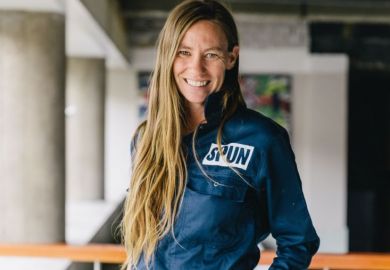How to be a happy heretic? As everybody knows, many of the rewards in science go to those who perform so-called normal science, yet such yeomen are largely replaceable. We need the paradigm shifters. But we don't always reward them, and too many of them spend too long crying in the wilderness. How can we alleviate their lot?
Karl Marx, in his theories of economic determinism, would have answered the question simply: money. Money is power, so the scientist who - however heretical - can harness money, will be happy. To some extent this book, which is a multi-authored series of mini-biographies of 19 iconoclasts in biology, ranging from Oswald Avery to Vero Wynne-Edwards, confirms Marx's thesis.
Some happy heretics simply inherit money. So Peter Mitchell of the chemiosmotic theory was an iconoclast whose career, had it been conventional, would have failed. He took seven years to get his PhD at the University of Cambridge, and he had to resign his lectureship at the University of Edinburgh after a nervous breakdown. But thanks to his fortune, he built a private research lab where he could develop his heretical theories undisturbed.
Equally, Alfred Russel Wallace earned his money by collecting plants and animals in the tropics for rich amateurs in Britain, which allowed him to spin out his theories with little care for the disapprovals of the academic world.
But few scientists inherit wealth or inhabit rainforests, so how - if they are heretics - can they combine heresy with happy careers? Since this is a book of happy heretics, most of whom lived to be properly recognised, the answer emerges: secure a conventional reputation. To adapt Byron, a happy heretic's heresy is of their life only a part, but for the unhappy heretic it is their whole existence.
For some heretics, such conventionality is second nature, because their heresy emerged unexpectedly. So the very conventional Oswald Avery discovered that it was a sugar, DNA, that conveyed genetic information, thus overturning the earlier assumption that it was a protein, through experiments that - though deplored by the panjandrums - simply spoke for themselves.
Equally, Raymond Dart, an anatomist in South Africa, described in 1925 the first fossil "missing link" between apes and humans, Australopithecus africanus, simply because he had found the first such fossil - that's what the bones told him.
Other happy heretics, though, essentially live parallel lives, a conventional one and a heretical one. So Howard Temin (who co-discovered reverse transcriptase) published high-quality conventional papers in viral molecular biology alongside the more speculative ones, which allowed him to sustain the trust of the grant reviewers.
Further, the Temin story (which Daniel Kelves tells well) exposes some little-recognised truths. So we learn that Temin's first grant proposal initially failed peer review, but that he was nonetheless awarded the grant because the reviewers had faith in the judgment of the departmental chair at the University of Wisconsin who had hired him.
This conforms to the argument of my own heretical book that - pace the claims to objectivity of peer review - science is actually organised in invisible colleges based on trust and reputation, which ultimately explains why governments need not fund it.
This is a delightful book that would make a good Christmas present. The choices of subjects and authors are excellent, and the nuggets it reveals are intriguing (I had forgotten, for example, that the idea of neutral mutations in DNA was once controversial, and that the idea of male-dominance hierarchies in social primates has since been nuanced). This is a book for anyone interested in biology or biologists.
Rebels, Mavericks and Heretics in Biology
Edited by Oren Harman and Michael R. Dietrich. Yale University Press, 352pp, £25.00. ISBN 9780300116397. Published 3 June 2008
Register to continue
Why register?
- Registration is free and only takes a moment
- Once registered, you can read 3 articles a month
- Sign up for our newsletter
Subscribe
Or subscribe for unlimited access to:
- Unlimited access to news, views, insights & reviews
- Digital editions
- Digital access to THE’s university and college rankings analysis
Already registered or a current subscriber? Login



